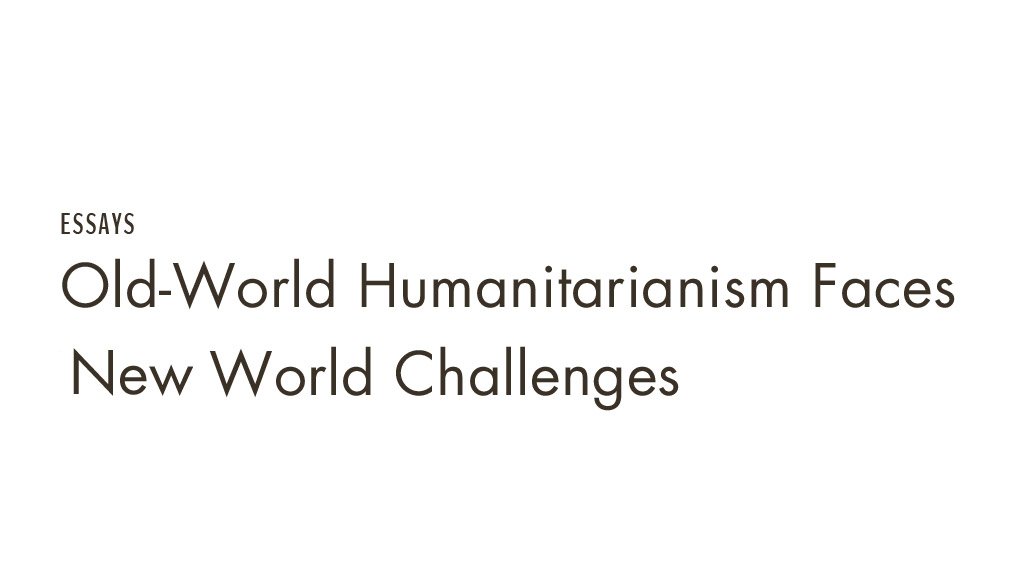- Old-world humanitarianism faces new-world challenges1.72 MB
In this essay, Lord Malloch-Brown, a CGD board member, explores the theme “Old-World Humanitarianism Faces New-World Challenges.”
Lord Malloch-Brown suggests that we have come too readily to accept failure in humanitarian aid. He reminds us that the problems of the humanitarian system are “at the smaller end of the world’s problems,” and yet tackling them would make a big difference for the people affected. He asks whether the humanitarian community currently has the mandate, competencies, and resources necessary to address these challenges. He calls for a collective restatement of the world’s responsibility to help the victims of conflict and disaster, and for a reinvention of the agencies which dominate the humanitarian system.
The World Humanitarian Summit, which will take place in Istanbul in 2016, is an opportunity for the world to rise to Lord Malloch-Brown’s challenges.
I have the privilege of chairing the High Level Panel on Humanitarian Cash Transfers, which is exploring the use of cash transfers for humanitarian assistance and what this could mean for national and international humanitarian organisations. In many, though not all circumstances, meeting basic needs primarily through cash promises more effective and efficient assistance which gives people affected by disasters greater choice, dignity, and control in rebuilding their lives. Much greater use of cash transfers may well contribute to the reinvention of the system of humanitarian assistance for which Lord Malloch-Brown calls in this essay.
Mark Malloch Brown has experience and knowledge which entitles him to be listened to carefully. Internationally he is best known for his time as deputy secretary-general and chief of staff of the UN under Kofi Annan. But his connection with humanitarian work goes back a long way: in the 1970s and 1980s he worked in Thailand for the UN High Commission for Refugees, where he supervised the construction of refugee camps for Cambodian refugees. Later on he served as the administrator of the UNDP, leading the UN's development efforts around the world. He went on to be minister of state in the British Foreign and Commonwealth Office, covering Africa and Asia, in which position he was a member of Gordon Brown's cabinet. He has also been vice-chairman of George Soros's Investment Funds, as well as his Open Society Institute; a vice-president at the World Bank; the lead international partner at Sawyer Miller, a political consulting firm; and vice-chairman of the World Economic Forum. He now sits in the House of Lords and remains active in the business and nonprofit spheres.
Written by Mark Malloch Brown, Center for Global Development
EMAIL THIS ARTICLE SAVE THIS ARTICLE
To subscribe email subscriptions@creamermedia.co.za or click here
To advertise email advertising@creamermedia.co.za or click here











